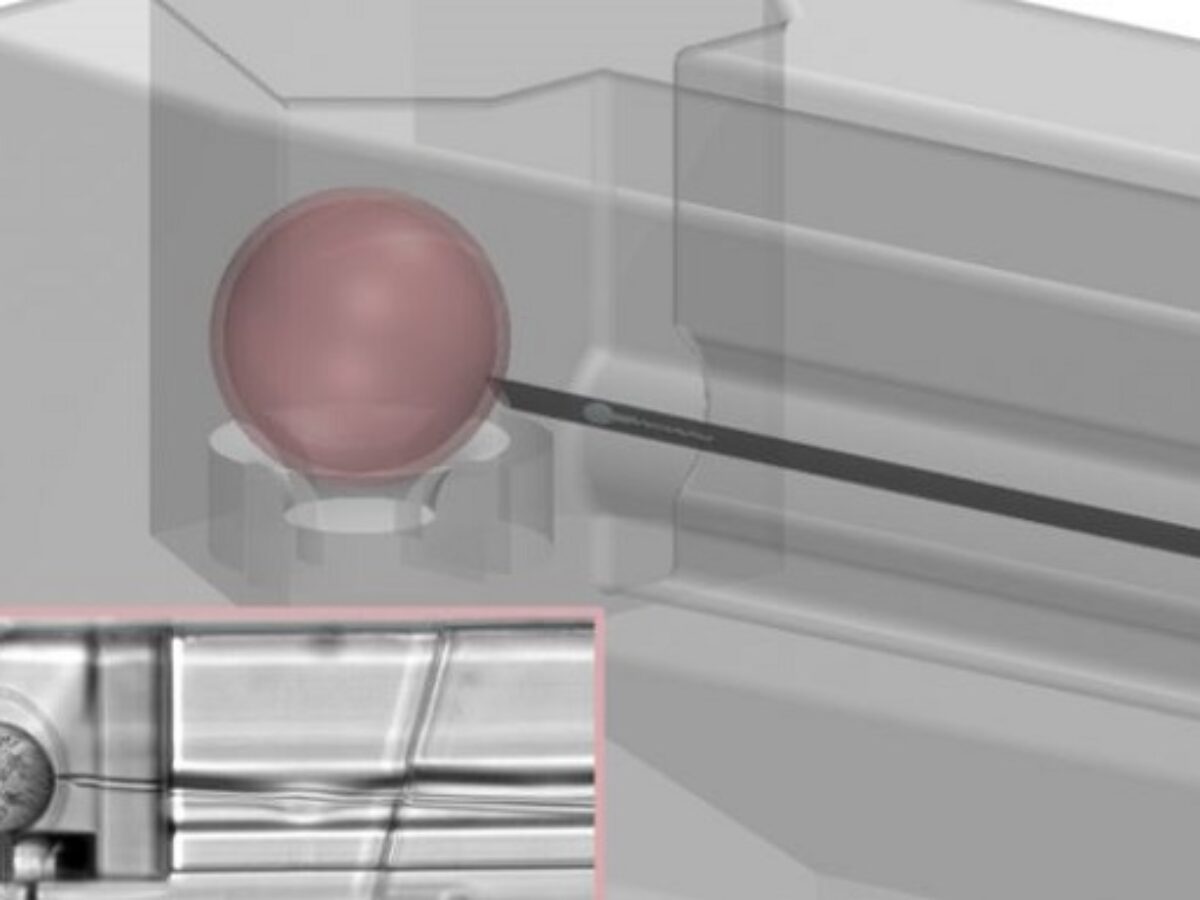Micro device boosts IVF success

University of Adelaide researchers and medical technology company Fertilis have developed a new micro-device (main picture) to streamline the only fertility treatment procedure available for men with low sperm counts.
The first-of-its-kind device will allow more IVF clinics to offer Intracytoplasmic Sperm Injection (ICSI), which involves the injection of a single sperm into an egg for fertilisation, as a treatment.
As well as streamlining the slow and difficult procedure of ICSI, other IVF procedures, such as embryo culture, embryo cryopreservation and in vitro maturation, will also be improved by using the device.
The new technology – smaller than a pinhead in size – holds up to 10 eggs in segregated positions for quicker injection, making it easier for embryologists to track and avoid the risk of errors.
Dr Kylie Dunning (pictured below) from the university’s Robinson Research Institute said the device will cut treatment time in half, require less training for embryologists with less expensive equipment than current ICSI treatment and improve access to the procedure for more patients.
Dr Dunning said: “The development of this new, innovative approach is an important breakthrough for people wanting to start a family who haven’t been able to due to male infertility.
“This discovery removes significant barriers to treatment for people with infertility and will improve IVF success.”
The new device removes the need for the pipette that normally holds the unfertilised egg in position during ICSI, simplifies the injection process, reduces dependency on a high level of technical experience and will dramatically improve embryo production.
Device inventor and Fertilis co-founder, Professor Jeremy Thompson, said his company is excited to bring the breakthrough device to market.
Professor Thompson said: “Where IVF science has excelled, technology has tended to stagnate – until now.
“ICSI hasn’t changed since its discovery 30 years ago.
“Continued innovation in the IVF lab like this is the only way we will boost success and reduce the financial and emotional burden for patients.”
The device will undergo global clinical trials in 2022.

Picture: University of Adekaide: device and Dr Kylie Dunning
Subscribe to our free @AuManufacturing newsletter here.
Topics Manufacturing News Technology
@aumanufacturing Sections
Analysis and Commentary Awards casino reviews Defence Gambling Manufacturing News Online Casino Podcast Technology Videos





